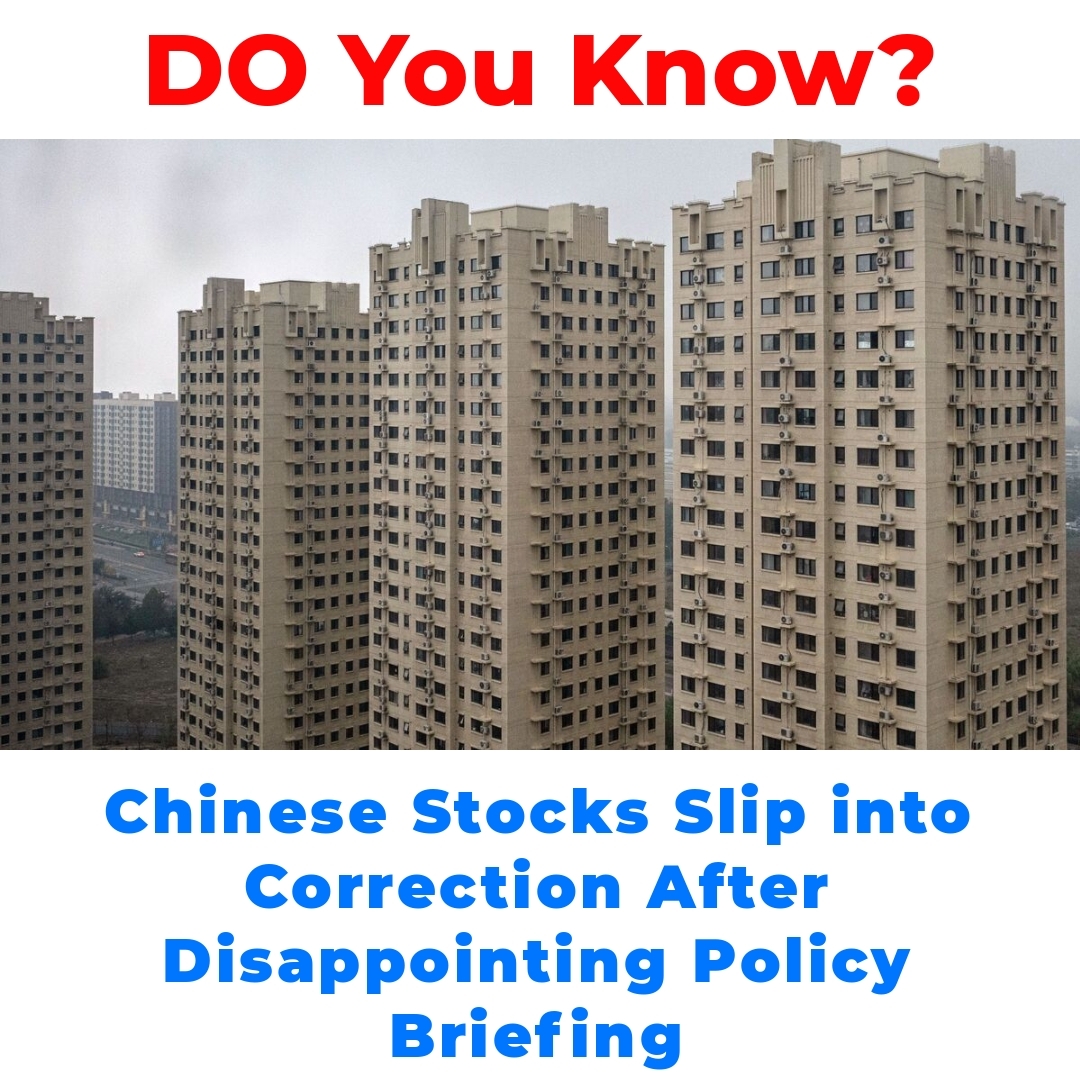Chinese stocks have recently faced a significant decline, raising concerns among investors and analysts alike. This downturn illustrates the critical role of investor sentiment within stock market corrections. Understanding these dynamics is essential, especially in light of recent policy briefings and their implications for the Chinese economy.


The Current State of the Chinese Stock Market
The recent trends in Chinese stocks show a notable decline, reflecting a broader stock market correction that has investors on edge. Over the past few months, we’ve seen volatility in the market driven by various factors, from economic indicators to shifts in investor sentiment. Key statistics reveal that major indices have dropped, raising questions about stability in the Chinese economy.
This stock market correction does not just mean declining prices; it also has significant implications for investors and the overall economic landscape. As foreign and domestic investors reevaluate their strategies, it becomes crucial to understand the broader context. The performance of Chinese stocks is often viewed as a barometer of the health of the Chinese economy, which has its own set of challenges.
The Recent Policy Briefing: What Happened?
In the latest policy briefing, key officials outlined economic measures intended to support growth amid these turbulent times. However, the expectations surrounding these measures didn’t quite align with reality. Investors were looking for aggressive pro-growth stimulus initiatives, but the government’s response has led to mixed feelings.
Analyzing the briefing reveals several key issues addressed, particularly focusing on stabilizing the economy and fostering confidence among investors. The absence of strong, immediate stimulus measures may have contributed to the heightened anxiety in the stock market, making it even more important for investors to dissect these announcements closely.
Impact of the Policy Briefing on Chinese Stocks
The immediate aftermath of the most recent policy briefing saw a notable shift in investor sentiment. Many expected that the announcement would boost confidence and lead to a rebound in Chinese stocks. Instead, there was a disconnect between these hopes and the outcomes presented by policymakers.
Certain sectors, particularly those reliant on government support, felt the sting of disappointment far more than others. For instance, industries like real estate and technology reacted negatively, reflecting broader investor concerns about the effectiveness of proposed economic policies. This disconnect shows just how sensitive the market is to policy announcements and investor expectations.
Reasons Behind the Decline of Chinese Stocks
As we dig deeper into the decline of Chinese stocks, several underlying reasons come to light. A significant factor is the correlation between shifting investor sentiment and economic policies. Many analysts point to lingering uncertainties surrounding regulatory reforms and how they impact business operations.
Expert opinions are varied, but a common theme emerges: many believe that unless there is a clear pathway for economic recovery and stronger pro-growth stimulus, the volatility in Chinese stocks may persist. The landscape is precarious, and knowing what influences market trends is crucial for investors.
What Investors Expect from Chinese Economic Stimulus
Looking ahead, investors are keenly watching for anticipated pro-growth stimulus measures from the Chinese government. They are eager to understand what steps will be taken to reassure markets and foster an environment conducive to growth.
Investor expectations are a mix of cautious optimism and skepticism. Many are seeking clarity on how these policies will translate into tangible benefits for the economy and, consequently, the stock market. The nuances of what investors expect from Chinese economic stimulus are critical in shaping market dynamics in the coming months.
Conclusion
In summary, the significant decline in Chinese stocks acts as a crucial reminder of the delicate balance between investor sentiment and economic policy. With the stock market correction reflecting deeper issues within the Chinese economy, it’s essential to maintain an informed perspective.
Looking toward the future, the outlook for Chinese stocks will heavily depend on forthcoming policy guidance. Understanding the reasons behind the Chinese stock market decline and how economic policies shape investor behavior will be vital for anyone navigating this landscape. As developments unfold, staying tuned to policy briefings could hold the key to seizing future opportunities.
Call to Action
It’s essential for investors to stay informed about further developments in the Chinese economy and stock market trends. Engage with others by sharing your insights or experiences regarding investments in Chinese stocks—it’s a conversation worth having!
FAQ
What factors are contributing to the decline in the Chinese stock market?
The decline in the Chinese stock market is influenced by:
- Shifting investor sentiment.
- Economic indicators showing weakness.
- Regulatory uncertainties affecting business operations.
- The recent policy briefing that fell short of investor expectations.
How did the recent policy briefing impact investor sentiment?
The recent policy briefing did not provide the aggressive pro-growth stimulus measures that investors were hoping for. This mismatch led to heightened anxiety and a negative reaction in certain sectors, particularly real estate and technology.
What are investors looking for in terms of economic stimulus?
Investors are eager to see:
- Clear and effective pro-growth economic measures from the government.
- A reassessment of policies that will create a conducive environment for growth.
- Realistic steps that translate into tangible benefits for the economy and the stock market.
What sectors are most affected by the decline in Chinese stocks?
Sectors that are heavily reliant on government support, such as:
- Real estate
- Technology
These sectors reacted negatively following the policy announcements, reflecting broader investor concerns.
What do analysts predict for the future of the Chinese stock market?
Many analysts believe that:
- The volatility in Chinese stocks may continue unless there is a clear pathway for economic recovery.
- Stronger pro-growth stimulus measures are essential for stability in the market.





